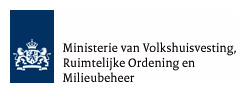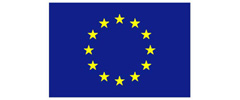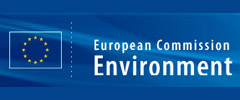Nairobi UNEP GC: Governments come and go – but women stay: governments listen to the women’s major group at UNEP
Executive director of WECF, Sascha Gabizon, represented the Women’s major group at the Governing Council Meeting of the United Nations Environment Programme.
02.03.2009 |Sascha Gabizon

Kaisha Atakhanova speaking on the nuclear legacy in Kazakhstan
The executive director of WECF, Sascha Gabizon, represented the Women’s major group at the Governing Council Meeting of the United Nations Environment Programme in Nairobi, Kenya. All 9 major groups take part as civil society representatives, in the meetings of the ministers of environment.
The women’s major group brought together women representatives from Africa, Asia, Europe and the Americas, who presented their concerns and policy recommendations, focussing on the main themes of the UNEP CG, the Green Economy and the reform of International Environmental Governance.
The women also organised a demonstration to protest against the proposal by some governments to make nuclear power eligible under the Clean Development Mechanism (CDM), which stands in stark contrast to the aims of the CDM of ecosystem integrity and sustainable development, instead, the women asked for a simplified CDM mechanism to benefit households and poor communities, and help create decent and healthy jobs for women. WECF organised 2 side-events on the need for a keeping nuclear power out of the CDM mechanism, exemplified by the case-study of longterm nuclear contamination of Kazakhstan, presented by Kaisha Athakanova, Director of Eco-Forum of NGOs, Kazakhstan.
As member of the Network of Women Environment Ministers and Leaders, WECF executive director Sascha Gabizon was invited to speak at the High Level Gender and Environment conference, which took place on 15th of February, where she presented the need for investments in the green economy to be not only green, but also fair and in support of women, creating decent and healthy jobs. She exemplified this by comparing the planned 3000 billion euro investment in a quadrupling of nuclear powerplants, creating few and often dangerous jobs, with the same amount invested in household level renewable energy systems, which would create 150 million decent jobs, accessible for women, safe costs for poor families and reduce CO2 emission in a much greater range then nuclear power. See the programme and conclusions of the Gender High Level conference.

The women gave 4 interventions during the plenary sessions, including on the need for stronger environmental management, which lead the Swiss delegation to conclude that “Governments come and go…but women stay”.
Women major group statement on IEG, Ministerial Consultation Thursday 19 February 2009:
"We the women’s major group believe that to face the global environmental crisis, we need long term strategies and long term implementation, strategies which are holistic, and not focus only on the green economy, but also on social, health and gender aspects.
Governments come and go, and sometimes that means that short term economic interests will stand above the wellbeing of the population and the environment.
Sometimes, governments even go back on what the previous governments have agreed on, and there is the recent example of the Rotterdam Convention, where governments had agreed that all decision would be based on global scientific consent to list hazardous products on the list for prior informed consent. At the last Rotterdam COP4 we have seen that several governments went against the global scientific agreement, and opposed Chrysotile Asbestos to be added to the PIC list. Because of this, millions of people might get asbestosis, cancer, something which would have been avoided if we had a stronger global environmental governance.
We therefore feel that we need a strong global environmental governance organisation, which has much more resources, which can wield both the carrot and the stick, and which is close to the people, thus able of capacity building and support at the national level. We are worried that, as with the Clean Development Mechanism – which ironically has benefited mostly big fossil fuel companies and hardly the renewable energy sector – that similarly the green new big deal will benefit the vested interests and not provide the necessary access and support for the grassroots private sector, as to create decent and healthy jobs, especially for poor women in this world.
We therefore recommend strengthened involvement of all the major groups, and increased access for civil society, and especially women, to global instruments to foster sustainable development, in particular creating simplified mechanisms for the CDM and the GEF."
Women’s major group statement, Morning Ministerial Consultation Plenary Wednesday 18th February 2009
In times of financial crisis and job insecurity, it is essential that governments focus on investing in measures that fight poverty and climate change at the same time, which promote the green economy and create decent and healthy jobs, especially for poor women. These measures need to be created at national level, as so well illustrated by the Polish case, but also our global financial instruments, such as CDM, need to provide funds for the green economy, not the brown economy.
We therefore propose to create a simplified CDM mechanism for sustainable energy projects at household and community level, including improved funding conditions for smaller scale and cutting-edge technology projects. Such projects should be developed in consultation with the local communities, including women, and should be accessible to them. To achieve this there should be simplified registration procedures for micro projects (<15.000 tCO2 eq/year) as well as the creation of specialised Designated Operational Entities (DOEs) for small communities projects.
However, we are very concerned, that there has been a proposal to make nuclear power eligible for CDM. The latest 2008 scenario by OECD and IEA shows, that even a massive, four-fold expansion of nuclear power by 2050 would provide only marginal reductions (4%) in greenhouse gas emissions. This stands in total contradiction to the green economy as nuclear power creates very few and often dangerous jobs. We therefore recommend the governments of the world to keep nuclear power out of the CDM (or its successor) or any other UNFCCC mechanism, as it is in conflict with the goals of CDM of environmental integrity and promoting sustainable development.
With the same amount of investment necessary for nuclear, millions of households can be turned into net renewable energy producers, creating millions of decent and healthy jobs, saving a magnitude more CO2 emission, saving energy costs, improving living standards. There is a huge potential for such projects especially in LDCs, unfortunately the current CDM mechanism is not accessible for household level projects. We now need an instrument which helps us fight poverty and climate change at the same time.
See also the UNEP website and the key Messages from the Tenth Global Civil Society Forum
Related News
Round table discussion Violence Against Women and Economic Development
The round table treated the topic of Violence against women and Economic Development
13.12.2017
Women Ministers and Leaders Breakfast Meeting Report
On the 5th of December more than 100 female ministers and leaders met, and discussed the topic of Gender and a Pollution Free Planet
11.12.2017
WECF board member took part in seminar on CEDAW General Recommendation
Utrecht University organised the seminar in the light of the new CEDAW General Recommendation on gender-related dimensions of disasters in a changing climate
17.10.2017
WECF participated at WASH symposium in Uganda
From June 20th-23rd, a WASH symposium was held in Kampala, Uganda. WECF participated in cooperation with our local partner organization ARUWE and we presented our water, sanitation and energy projects in Uganda.
23.06.2016
We've made it - overwhelming success of our crowdfunding campaign!
In the last 4 weeks we run a crowdfunding campaign to collect 4.000€ to finance 15 Biogas Toilets for deprived families in Uganda. Thanks to your great support we can now build even more!
22.06.2016







































